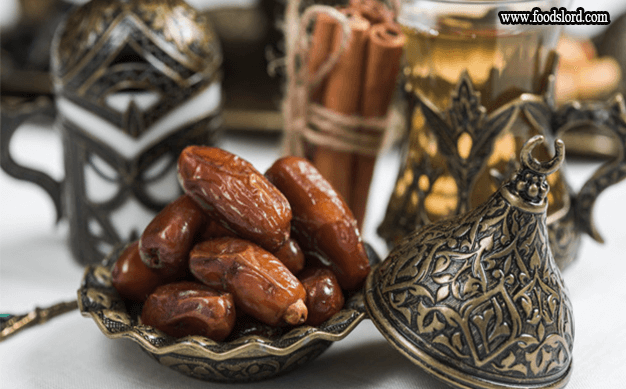Dates have a lot of health benefits which make it a very healthy snack and keeping blood sugar levels high. This is because blood sugar levels drop over a long period of time. Fasting in Ramadan is from sunrise to sunset. If you are fasting, you should abstain from eating and drinking for more than sixteen hours or more. In addition, it makes you not look for unhealthy sweets and start the Iftar party with this natural sweet fruit.

Health benefits of dates in Ramadan
Dates are rich in sugar, fiber, minerals, plant nutrients and (if fresh) vitamin C. It also contains potassium, magnesium, iron and a small amount of protein and fat. Dates are easy to digest and make it a fast source of energy and nutrients. Eating dates after a day of fasting can help increase blood glucose levels in the body. If you are fasting, eating dates before meals relieves the feeling of hunger, which in turn helps prevent overeating.
Improve digestion
During fasting, your body is deprived of many important micronutrients, vitamins, minerals and fiber. All of these are found in fruits and vegetables. Dates are high in fiber, which makes up for the lack of nutrients. When consumed with water, dates help keep your digestive tract clean and greatly prevent bloating and discomfort.
Dates replace sweets and artificial sugars
Sometimes, you cannot use sweets and cakes during non-fasting hours. Fortunately, a few dates are what fill your body with nutrients such as iron, calcium, magnesium, potassium and phosphorus. People who suffer from cholesterol or heart disease can enjoy eating it and it is also almost fat-free and cholesterol-free.
Ref: Health benefits of dates, a favorite dried fruit of Ramadan







